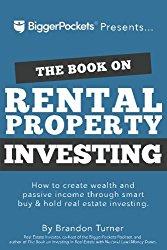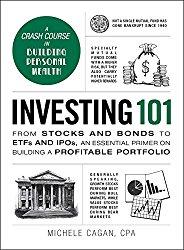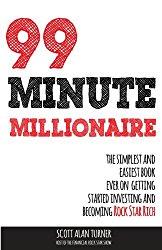For most people, the start of their financial life is probably around 16. That is when you can get a job, you start thinking about larger purchases like cars (and car insurance), and you’re starting to handle money a lot more since you’re going to stores on-your-own. You’re probably given very little financial advice at this point, or maybe you’re given bad financial advice like about the wonders of credit cards or car payments. Maybe you’ve looked over your parent’s shoulder at tax time and been told of how important it is to keep a mortgage payment so that you have that interest deduction.
Unfortunately, most people don’t get much financial advice from their parents, plus much of what they do get is wrong. This is one of the reasons that we have so many issues with debt and bankruptcy in our society. I expect this situation to get a lot worse as the Babyboomers and Generation-X get to retirement age but don’t have anywhere near enough saved up.

SmallIvy Book of Investing: Book1: Investing to Grow Wealthy
So looking over your life now, knowing what you’ve learned, what advice would you give yourself related to money at age 16? Here are a few things I would say:
1. Start an IRA today.
I didn’t have a regular job at a fast food restaurant or anything while I was in high school, but I did do things like mow lawns and maintain yards for money. I’m not sure what I spent that on back then, but as soon as I had earned income, I could have put the money in an IRA. Starting at age 16, it would be worth about 512 dollars for each dollar I invested. For example, $1000 invested then would have been $512,000 at retirement age.
2. Don’t buy bonds until you’re at least 55.
Bonds offer stability when the stock market declines, at least most of the time. For example, in 2008 when the stock market fell about 40%, bonds actually increased a couple of percentage points. The trouble is that over long periods of time, stocks will return between about 10 and 15%, where bonds will return between 6 and 8%. That means a portfolio of stocks will double on average every 5-7 years, where bonds will only double every 8-10 years. I’ll take the wild ride for the higher gains any day, so long as I have 10-15 years to give stocks to recover from any declines and slow patches.
Get Your Jam On and Help The Small Investor Keep Going
Buy Your New Tools Here and Help Keep the Small Investor Going
3. If you’re going to buy individual stocks, pick your favorite three and hold on.
I used to buy 100 shares at a time of a variety of different stocks, some of which I really liked, others I sort of liked. Then, if the stock went up 10 dollars, I’d sell, being happy to make $1,000. If the stock dropped by 5 points or so, I’d sell to limit the loss. Today I pick just a few companies that I really like and buy 500 or 1000 shares. Sometimes I may even get 2,000 shares. I then wait for the company to grow and the stock to go up with the growth. I don’t want to make $1,000 when I’m right – I want to make $100,000. This might take several years, but I just hold on so long as the company looks good – I don’t worry so much about the stock price.



4. Skip the car payment – buy a used car you can afford.I started out with a leased car because my father thought it was better to not need to worry about the maintenance bills. I soon discovered that the $350 per month I was shelling out would cover a lot of maintenance. Plus, I found that cars just don’t break down that often. I now buy used cars for cash and have been moving up from $3000 for the first car (8 years-old), to $8,000 for the second (4 years-old), to $15,000 for the last one (3 years-old). Along the way, I have probably saved $120,000 in car payments, which has greatly helped in funding reitrment accounts.
So what would you tell yourself at 16 years-old?
Have a question? Please leave it in a comment. Follow me on Twitter to get news about new articles and find out what I’m investing in. @SmallIvy_SI
Disclaimer: This blog is not meant to give financial planning or tax advice. It gives general information on investment strategy, picking stocks, and generally managing money to build wealth. It is not a solicitation to buy or sell stocks or any security. Financial planning advice should be sought from a certified financial planner, which the author is not. Tax advice should be sought from a CPA. All investments involve risk and the reader as urged to consider risks carefully and seek the advice of experts if needed before investing.
